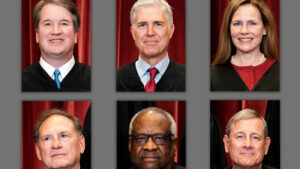Rhode Island gubernatorial election, 2022
The 2022 Rhode Island gubernatorial election took place on November 8, 2022. Incumbent Democratic Governor Daniel McKee defeated Republican nominee Ashley Kalus and three third-party candidates to win a full term in office.
The race garnered national attention as an unexpectedly competitive contest in a longtime Democratic stronghold. Ultimately, Governor McKee prevailed by a comfortable margin, maintaining Democratic control of the Rhode Island governorship.
Background and Context
To understand the dynamics of the 2022 Rhode Island governor’s race, it is helpful to examine the state’s political landscape as well as key dates, candidates, and events leading up to Election Day.
Rhode Island Political Landscape
Rhode Island is a reliably Democratic state in federal elections, having voted for the Democratic presidential nominee in every election since 1988. At the state level, Democrats have maintained total control of Rhode Island’s government for over a decade.
In the 2022 elections, Democrats held supermajorities in both chambers of the Rhode Island General Assembly. All statewide elected executive offices were also held by Democrats.
Despite this dominance, Rhode Island voters have shown a willingness to elect moderate Republicans as governor. Republican Donald Carcieri served two terms from 2003 to 2011. Since 1991, Democrats have held the governorship for 20 years compared to 12 years of Republican control.
Key Dates and Deadlines
- September 13, 2022: Primary Election Day
- October 9, 2022: Voter registration deadline
- October 19-November 7, 2022: Early voting period
- November 8, 2022: General Election Day
Notable Candidates
The Democratic and Republican primaries featured multiple contenders vying to represent their parties in the general election. Several independent and third-party candidates also joined the race.
Democratic Candidates
- Daniel McKee (incumbent): McKee was elevated from lieutenant governor to governor in March 2021 when Gina Raimondo resigned. He sought a full term in 2022.
- Helena Foulkes: Former CVS Health executive who positioned herself as an outsider.
- Nellie Gorbea: Rhode Island Secretary of State who emphasized her government experience.
- Matt Brown: Former Rhode Island Secretary of State (2003-2007) running a progressive campaign.
Republican Candidates
- Ashley Kalus: Republican nominee and management consultant new to Rhode Island politics.
- Jonathan Riccitelli: Republican state senator endorsed by the Rhode Island GOP.
Third Party and Independent Candidates
- Zachary Hurwitz (Independent): Recent college graduate campaigning on a variety of issues.
- Elijah Gizzarelli (Libertarian): Small business owner and Libertarian activist.
Democratic Primary
Primary Overview and Results
Governor McKee faced his toughest competition from former CVS executive Helena Foulkes, who attacked McKee’s progressive credentials. Secretary of State Nellie Gorbea and former Secretary of State Matt Brown also contended, fracturing the anti-McKee vote.
In the September 13 primary, McKee prevailed with 33% of the vote, short of the 50% needed to avoid a runoff. However, his six point margin over Foulkes was enough for the Associated Press to declare McKee the winner, given the difficult path ahead for Foulkes.
Key Issues and Events
- Pandemic response: McKee touted his leadership during COVID-19, while Foulkes criticized the pace of reopening businesses and schools.
- Education: Teachers’ unions criticized McKee over Rhode Island’s pooling of education funding. Foulkes won endorsements from several unions.
- Fundraising: McKee held a huge money advantage as the incumbent, outraising Foulkes by over $1 million.
Republican Primary
Primary Overview and Results
The Republican contest was not competitive, as Ashley Kalus overwhelmed her lone challenger Jonathan Riccitelli with 84% of the vote.
Kalus showcased her personal wealth by spending $1.1 million of her own money, outspending Riccitelli 100-to-1. Her massive investment in the primary helped boost her name recognition for the general election.
Key Issues and Events
- Abortion: Staunchly pro-life, Kalus supported Rhode Island’s restrictions on abortion and hoped to chip away at them.
- Economy: Kalus campaigned on improving Rhode Island’s business climate by cutting regulations and taxes.
- Outsider status: Never having run for office, Kalus branded herself a political outsider and pragmatic problem-solver.
General Election Campaign
As the nominees, McKee and Kalus faced off in a competitive general election that tightened considerably as November approached.
Campaign Issues and Events
- Abortion: Kalus’ pro-life stance put her at odds with Rhode Island’s liberal abortion laws. McKee highlighted this vulnerability.
- Crime: Kalus attacked McKee over crime rates and supported tougher penalties, while McKee touted new gun regulations.
- Ads: The RGA funded attack ads for Kalus, while national Democratic groups aided McKee. Total ad spending topped $7 million.
Campaign Finance
- Through late October, McKee raised $3.7 million and spent $3.1 million.
- Kalus raised $3.4 million and spent $2.8 million, including $1.2 million self-funded.
- RGA backed Kalus with $2.7 million in outside spending.
Polls and Predictions
- McKee led comfortably early on, but Kalus closed the gap in October polls.
- The last public poll had McKee up just 5 points, much closer than expected.
- Forecasters shifted the race from “Likely D” to “Lean D” in the final month.
Results and Analysis
General Election Results
Ultimately, McKee defeated Kalus by a 57.9% to 38.9% margin. Third-party candidates combined for just under 4% of the vote.
McKee performed well in Providence and surrounding urban areas, while Kalus won rural counties. However, McKee’s substantial lead in Providence County was enough to deliver statewide victory.
Key Takeaways
- Fundamentals mattered: Partisan lean and incumbency advantage kept bluer Rhode Island in Democratic hands.
- Abortion rights mobilized women: Kalus’ pro-life stance hurt her, as McKee captured women voters by over 25 points.
- Money talked: McKee’s financial dominance let him control the airwaves in defining Kalus early on.
Impacts and Aftermath
With the election settled, attention shifted to governing implications and future political trajectories.
Policy Changes and Priorities
- McKee planned to continue investments in job training, affordable housing, education, and renewable energy.
- Democratic legislative majorities limited McKee’s ability to move radically leftward.
- Abortion protections emerged as a top priority for Rhode Island Democrats post-Roe.
Political Implications
- Kalus’ competitiveness demonstrated Republican potential in blue states with the right candidates.
- For Republicans, the loss showed the persisting power of abortion rights as an issue.
- McKee’s underwhelming margin sparked some Democratic concerns heading into 2024.
Conclusion
The 2022 Rhode Island governor’s race offered important insights into how elections are evolving. Despite its solidly blue pedigree, Rhode Island proved that no state is immune to the forces reshaping the political landscape. For both Democrats and Republicans, the relatively close outcome provides lessons to apply beyond Rhode Island in future contests.
FAQs
Who won the 2022 Rhode Island gubernatorial election?
Incumbent Democratic Governor Daniel McKee defeated Republican challenger Ashley Kalus to win a full term as Rhode Island’s governor.
How close was the race between McKee and Kalus?
McKee won by a 57.9% to 38.9% margin over Kalus. The nearly 20-point spread was closer than expected but still a comfortable McKee victory.
When did Rhode Island last elect a Republican governor?
Donald Carcieri served two terms as Rhode Island’s governor from 2003 to 2011. He was the last Republican elected governor.
What role did abortion rights play in the campaign?
McKee highlighted Kalus’ pro-life stance to portray her as out of step with Rhode Island voters, who support legal abortion. This strategy helped McKee carry women voters decisively.
Did the race receive significant outside spending?
Yes, the RGA backed Kalus with $2.7 million in outside spending, while national Democratic groups aided McKee. Total ad spending topped $7 million.







